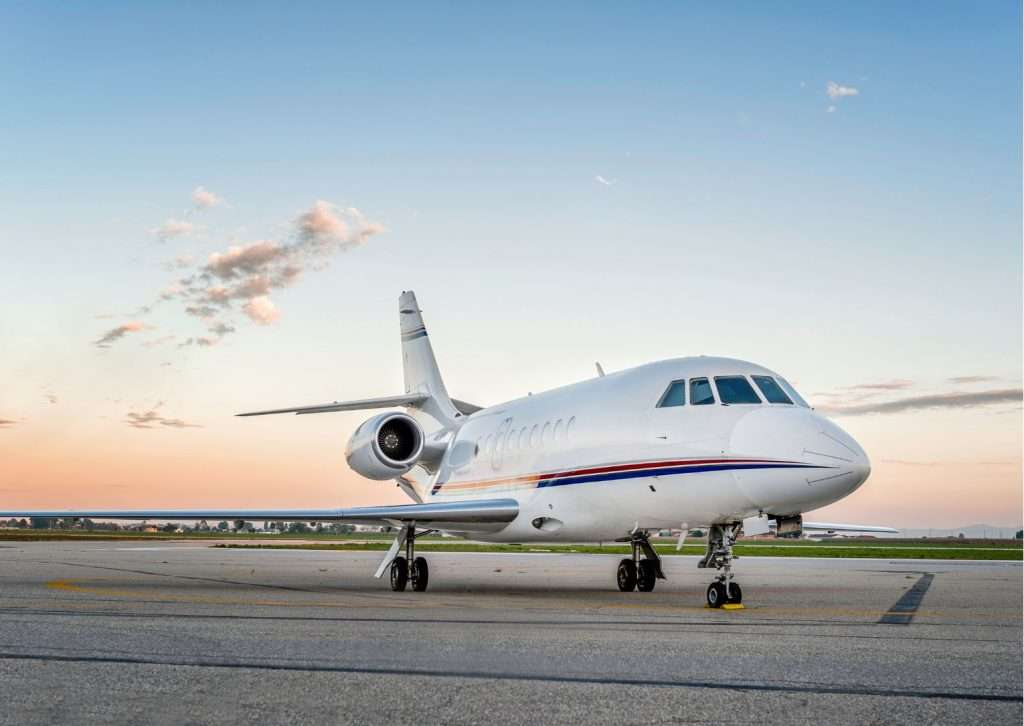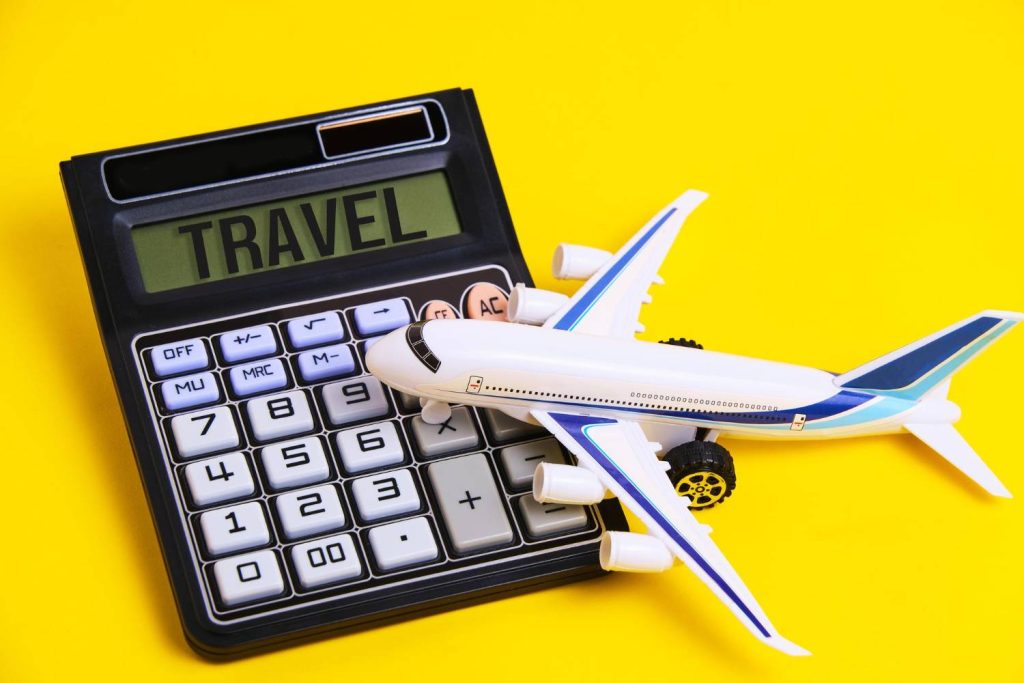Private jet demand has recently faced significant challenges, as economic uncertainty and tariff concerns have dissuaded even wealthy buyers from making purchases. According to a recent Barclays survey, interest in acquiring business jets has plummeted by 49% since March, signaling a troubling trend for the business jet market. With consumer confidence wavering, many potential customers are pausing their aircraft investments, fearing possible ramifications on their operating businesses. The decline in demand is further exacerbated by tariffs that are perceived as detrimental to new aircraft sales, prompting a broader hesitancy throughout the aviation sector. As the industry navigates these turbulent waters, understanding the underlying business aviation trends will be crucial for manufacturers and marketers alike.
The recent shift in interest surrounding private air travel reflects broader dynamics in the aviation industry, particularly concerning luxury aircraft acquisitions. The current climate, characterized by economic apprehensions and heightened policy scrutiny, has caused many affluent clients to reconsider their purchasing strategies. As the landscape of business aviation evolves, it is essential to explore how various factors—ranging from consumer sentiment to external economic pressures—are shaping the demand for high-end aviation solutions. This decline in jet sales, influenced by fears related to tariffs and overall economic stability, points to a critical juncture for the aircraft market. Keeping an eye on emerging business aircraft trends will be vital for stakeholders looking to adapt in this shifting environment.
Understanding the Factors Affecting Private Jet Demand
The current decline in private jet demand can be attributed to several economic factors that have created a ripple effect in the business aviation sector. Economic uncertainty has led to a significant reduction in consumer confidence, causing even affluent clients to reconsider their decisions regarding expensive purchases, such as private jets. According to a recent Barclays survey, customer interest in buying business jets has plummeted by nearly 49% since March, highlighting the extent to which economic conditions are influencing purchasing behaviors.
This decline in demand also reflects broader trends within the business jet market. The survey revealed that respondents expressed concerns regarding tariffs’ impact on aircraft sales and their operating businesses, fostering a wait-and-see approach among potential buyers. As such, fluctuations in consumer sentiment and economic indicators are becoming increasingly intertwined with the health of the business aviation market, directly affecting the demand for both new and used jets.
Several key indicators also point to a slowdown in the overall business aviation sector. The Barclays Business Jet Indicator saw a significant drop from 52 to 40, suggesting that the economic environment surrounding aircraft sales is becoming increasingly unfavorable. This decline correlates with a reduced book-to-bill ratio for airplane manufacturers, reflecting that new orders are lagging behind the existing plan to fulfill commitments.
Consequently, the combined impacts of consumer confidence, tariffs, and overall economic trends signal a challenging phase for the aircraft sales landscape, creating a ripple effect across suppliers and manufacturers.
The Role of Tariffs in Air Travel Decisions
Tariffs imposed on aircraft have been a major concern for potential buyers in the private jet market, with nearly 93% of survey participants believing that such tariffs would negatively influence new aircraft demand. This widespread apprehension is causing prospective buyers to hesitate, leading them to place purchases on hold while they await more favorable economic conditions. The fear of escalating tariffs affects not only the decision to buy but also the long-term strategies of businesses involved in aviation.
Moreover, the uncertain hike in tariffs creates a chilling atmosphere that extends beyond just those looking to buy new jets. For the market at large, it leads to pessimism regarding both new and used aircraft. Around 67% of respondents expressed doubts about the demand for used jets, fearing that any lingering tariff implications could further depress interest in these secondary market sales. This stagnant environment makes it increasingly critical for buyers and financiers to evaluate their strategies carefully in light of potential cost implications.
Consumer Confidence Trends in Business Aviation
Consumer confidence plays a pivotal role in shaping the trends in the business aviation sector, particularly with respect to private jet demand. As reported by Barclays, confidence levels have tumbled, leading wealthy buyers to retreat from the market. This decline is emblematic of broader economic challenges that have forced affluent consumers to reassess their luxury expenditures. The contraction of consumer confidence can directly impact the appetite for luxury items, including private jets, reflecting an overall sentiment characterized by caution.
This trend underscores the interconnected nature of consumer behavior and the business jet market. When consumer confidence is high, purchasing activity tends to blossom; however, as the survey indicates, even a slight downturn can lead to marked reductions in demand. The fact that nearly half of the respondents reported a deterioration in customer interest since March speaks volumes about how sensitive this market is to external economic pressures.
Analyzing Business Aviation Market Trends
The current trend within the business aviation market indicates a significant shift in buyer behavior and overall market sentiment. The sharp decline in private jet demand, as indicated by Barclays’ latest survey, reveals a concerning trajectory for aircraft sales moving forward. Traders and financiers are adjusting their expectations as the prospect of economic recovery appears increasingly uncertain. The survey’s findings reflect how a cautious approach has taken precedence, with a substantial number of participants revising their outlook for future aircraft demand.
Further complicating the landscape, the survey also highlighted persistent concerns over the availability of financing options and the influence of tariffs. Market dynamics, driven by both economic and regulatory factors, will likely continue to impact the business aviation sector, forcing stakeholders to remain vigilant. Understanding these underlying trends is critical for manufacturers and brokers navigating through a landscape marred by uncertainty.
The Impact of Economic Uncertainty on Aircraft Sales
Economic uncertainty is proving to be a significant barrier to aircraft sales, particularly in relation to the private jet market. With looming fears about inflation and job stability, even high-net-worth individuals are opting to delay their investments in luxury items. The latest data from Barclays underscores that a substantial 46% of surveyed brokers noted a decline in interest amongst potential jet buyers since March. This hesitance reflects a broader trend where individuals and corporate entities are reevaluating their immediate financial commitments.
As the conditions of the financial landscape continue to evolve, the challenges facing the aircraft sales market intensify. The dip in both consumer spending and overall business investment creates a complex environment that could stifle growth in what was previously seen as a resilient sector. As seen in the survey results, the ripple effects of economic reluctance extend far beyond initial purchase considerations, impacting financing options, maintenance costs, and overall market viability.
Legislative Changes That Could Impact Private Aircraft Demand
Pending legislative measures aimed at extending the benefits of the Tax Cuts and Jobs Act hold significant potential for the private aircraft market. By restoring provisions that allow for the immediate deduction of eligible equipment purchases, private jets could become more appealing to businesses seeking to maximize tax advantages. Such changes could facilitate a shift in consumer interest, potentially reversing some of the setbacks reported in recent surveys.
Lawmakers’ attempts to enhance tax incentives demonstrate a keen recognition of the complexities surrounding private jet demand. Elevating the bonus depreciation rate back to 100% could not only bolster demand for new jets but also lead to increased activity in the used aircraft market, supporting a more vibrant aviation landscape. It is vital for stakeholders in the business jet community to engage with these legislative developments as they may serve as a catalyst for renewed investment and interest in business aviation.
Future Prospects of the Business Jet Market
The prospects for the business jet market face considerable uncertainty, yet opportunities for recovery remain visible amidst the challenges outlined. While current indicators paint a bleak picture of declining consumer interest and sentiment, the evolution of legislation regarding tax benefits could herald a shift. Should effective measures be enacted, they might invigorate private jet demand, prompting a resurgence in the industry as businesses look to capitalize on tax incentives.
Market analysts believe that understanding consumer behavior in the context of economic fluctuations will be key to navigating this challenging landscape. Moving forward, stakeholders must stay attuned to shifts in buyer psychology and the legislative environment, recognizing that adaptability could play a pivotal role in capturing opportunities for growth in what has otherwise proven to be a tumultuous business aviation sector.
Strategies for Navigating the Decrease in Aircraft Sales
In light of the significant downturn in aircraft sales, industry stakeholders must adopt innovative strategies to navigate this challenging environment effectively. Given the staggering 49% decrease in demand for private jets according to recent surveys, strategies should not only address immediate concerns but also position businesses for long-term viability. Emphasizing customer relationships and understanding consumer sentiment can pave the way for better service offerings and more tailored jet solutions.
Additionally, leveraging technology and improving operational efficiency may help mitigate some of the adverse effects of current market conditions. By streamlining processes and enhancing customer engagement platforms, brokers and dealers can retain existing clients while appealing to new prospects. In a climate characterized by uncertainty, these strategic approaches could serve as essential tools for adaptation and resilience in the face of ongoing challenges to aircraft sales.
The Relationship Between Tariffs and Business Jet Purchases
The interconnection between tariffs and business jet purchases is critical for understanding the current dynamics of the aviation market. Survey data indicates that an overwhelming majority of industry participants believe tariffs will have a detrimental effect on demand. As companies brace for the implications of these trade policies, many are opting to delay or abandon their aircraft purchase plans, reflecting a broader hesitance that permeates the market.
This relationship indicates that regulatory factors must be taken seriously when analyzing market trends and consumer behavior in the private jet arena. Implementing strategic measures to counterbalance the impact of tariffs could be crucial in revitalizing market interest. Hence, it becomes imperative for manufacturers, dealers, and financiers to stay informed about legislative movements that could influence aircraft prices and desirability, ultimately affecting overall demand.
Frequently Asked Questions
What factors are currently influencing private jet demand in the business jet market?
Private jet demand in the business jet market is currently influenced by several factors, including economic uncertainty and declining consumer confidence. According to a recent Barclays survey, customer interest in purchasing business jets has plummeted by 49% since March, with surveys indicating that tariffs are significantly impacting consumer sentiment in the aviation sector.
How have tariffs impacted aircraft sales in the private jet market?
Tariffs have had a notably negative impact on aircraft sales within the private jet market. A staggering 93% of business jet brokers surveyed believe tariffs will adversely affect demand for new aircraft, with many expecting substantial repercussions. Hesitance among buyers often stems from concerns regarding how these tariffs will influence both their operating businesses and private jet prices.
What trends are emerging in business aviation amid declining private jet demand?
Amid declining private jet demand, several trends are emerging in business aviation. The recent Barclays Business Jet Indicator survey reveals a significant decrease in customer interest, with nearly half of the respondents reporting deterioration in interest since March. Additionally, expectations surrounding tariff impacts have left many wary of making new aircraft purchases, signaling a shift towards a more cautious approach.
How does consumer confidence relate to private jet demand?
Consumer confidence is closely related to private jet demand, as demonstrated by recent surveys. As consumer confidence declines, interest in business jet purchases wanes, with a reported 49% drop in demand since March. A lack of confidence can lead potential buyers to postpone their purchasing decisions, further affecting the overall health of the business jet market.
What are the predictions for the future of private jet demand considering current market trends?
Considering current market trends, predictions for private jet demand remain cautious. Factors such as tariff impacts and consumer confidence levels suggest that demand may continue to falter in the near term. However, potential legislative changes, like the extension of 100% bonus depreciation on eligible business equipment, could stimulate interest in private jets if enacted, providing a possible uplift to the market.
Are there any strategies for overcoming the recent decline in private jet demand?
To overcome the recent decline in private jet demand, stakeholders in the industry may consider adopting flexible pricing strategies and emphasizing tax benefits associated with aircraft purchases. Additionally, enhancing customer engagement and addressing concerns related to tariffs can help restore confidence among potential buyers, potentially stabilizing demand in the business jet market.
What are the implications of the recent drop in private jet demand for aircraft manufacturers?
The recent drop in private jet demand has significant implications for aircraft manufacturers, as evidenced by a low composite score in the Barclays Business Jet Indicator survey. This score indicates that new orders are lagging behind current fulfillment, which could lead to decreased production rates and financial strain on manufacturers if trends continue.
What role does legislation play in influencing private jet demand?
Legislation plays a critical role in influencing private jet demand, particularly through tax policies like the Tax Cuts and Jobs Act. Recently proposed legislation could restore 100% bonus depreciation for eligible aircraft purchases, enhancing the attractiveness of private jets from a financial perspective. Such changes may help revive interest in the market, countering the effects of tariffs and economic uncertainty.
What is the outlook for used jets in light of current private jet demand trends?
The outlook for used jets appears pessimistic amid current private jet demand trends. Approximately 67% of business jet brokers anticipate a negative impact on demand for used jets, driven by broader concerns of tariffs and economic instability. Nevertheless, some respondents (27%) remain hopeful for a slight increase in used jet demand, suggesting potential market variations.
| Key Point | Details |
|---|---|
| Decline in Demand | Private jet demand has dropped by 49% since March, according to a survey by Barclays. |
| Economic Uncertainty | Well-off travelers are pulling back on purchases due to economic concerns. |
| Barclays Survey Findings | A survey conducted with 65 respondents found a composite score drop from 52 to 40, indicating market slowdown. |
| Tariffs Impact | 93% of survey respondents believe tariffs will negatively impact demand for new aircraft. |
| Used Jets Outlook | 67% expect a negative impact on used jets demand, while 27% believe demand may increase. |
| Legislative Changes | Pending legislation may revive 100% bonus depreciation, making private jets more attractive from a tax standpoint. |
Summary
Private jet demand has significantly declined as economic uncertainty and tariff fears affect potential buyers. According to a recent Barclays survey, even affluent travelers are hesitant to invest in private aircraft, resulting in a staggering 49% decrease in interest. This turmoil in the market highlights the critical need for legislative changes that could potentially revitalize private jet demand in the future.



